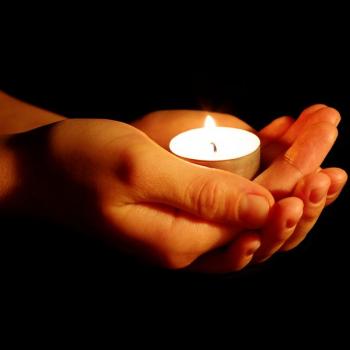I remember leaving the hospital with our first child and thinking, “Wow, I can’t believe they are sending us home with this baby! We have no idea what we are doing.”
In my experience, that is a fairly common reaction from new parents. To some extent, it’s also pretty true. I mean most of us know how to change diapers and dress babies. If we don’t already know to support their heads when we hold them, we figure it out pretty quickly because otherwise it just flops around!
But how do you figure out how much to feed them and how often? What are you supposed to do when they cry incontrollably? Is there really this much laundry or am I doing something wrong? Why won’t she latch on? Why doesn’t he sleep at night?
There are so many, many, many questions!
Parenting a newborn is exciting, exhausting, delightful, boring, and different every time. Every child is different and so much of parenting is figuring out how to care for and nurture each individual child. Each time we parent, we are different too. We change and grow and encounter each of our newborns differently as well.
That said, it is infinitely easier to bring a newborn home after you have done it once. While there are still things to figure out, you at least have some reference point and you have already built up a range of skills and techniques to draw on for soothing a crying baby, for easing colic, for self-care, and for getting through those first sleep-deprived months.
My niece had a baby two weeks ago and I have come down for a few days to meet the baby and visit with them. They are doing an amazing job at parenting and I have been truly inspired watching them share the parenting tasks and support one another in the midst of the stresses and the joys. It gives me real hope that some of the gendered expectations about marriage, parenting and family life really can be transformed!
As Gen Xers, my husband and I often felt like we were breaking new ground in co-parenting. We and our peer group supported one another in challenging gender norms and expectations but we really did experience all sorts of external pressures about whose job it was to do what. While I know much of that still remains, my millennial niece and nephew-in-law seem unfettered by much of what shaped our social world as new parents.
While their co-parenting has inspired me. I am also struck by their social isolation. Again, this is more a feature of the shifting dynamics of contemporary living than anything specific to them or their lives. They live five minutes from her mom (my sister) and fifteen minutes from her sister (my other niece). My nephew’s family (parents and sister) are also within an hour or so drive. So, when I say, “social isolation,” I do not mean that they are “alone.”
What I mean is that learning how to be a new parent and how to parent a newborn are both tasks that are well-suited to community formation. The collective wisdom of women who have born children and cared for newborns is invaluable for young mothers who are struggling to figure so many of these things out on their own. The collective wisdom of fathers who are able to share with one another both practical tips for childcare as well as strategies for supporting their wives as they navigate raging hormones, post-partum depression, sore nipples, lack of sleep, and post-partum intimacy would be an amazing boon particularly in the midst of the cultural shifts in gender expectations and behavior in parenting.
The first night I was here as we approached the “baby witching hour,” the baby’s distress gradually increased. As many new parents know and so many of us remember, newborns have trouble developing a sleep schedule oriented around sleeping at night and having their wakeful periods during the day. I recognized the frantic movements, the cries fighting sleep, the intermittent calm and distress from my own newborns’ actions. I asked if I could try to soothe him and employed the four “S’s” that were one of the mainstays of my parenting days – swaddle, suck, sway, shoosh.
Swaddle – wrapping a baby tightly in a blanket and tucking their little limbs inside helps to provide a physical feeling of safety. Probably because it mimics the tightness of the womb, the feeling offers a sense of security that can be calming and soothing.
Suck – many babies have a physiological need to suck. Their urge to suck does not necessarily mean that they are hungry or want to nurse or eat. They just need to suck. Some suck on their fingers or yours, other suck on pacifiers. Before I had my first baby, I self-righteously said I was not going to use pacifiers. Let me tell you, I had one in her mouth before the first 24 hours had passed. I didn’t know how strong the need to suck was until held my own baby in my arms and recognized how soothing sucking could be.
Sway – I don’t know why but babies are also often soothed by swaying motions. Whether that is swaying them in your arms, standing up and swaying side to side, or just jiggling them on your legs or shoulders. Movement often seems to help. Many parents have discovered this in the form of driving their babies around town until the motion of the car lulls them into sleep and this is why so baby swings and bouncies create a sensation of swaying.
Shoosh – this seems to be something I figured out instinctively but other mothers I knew quickly verified the miraculous effects of “shoosing” a baby. My hunch is that the sound of “shh, shh shh, shh” repeatedly rhythmically over and over and over might mimic the sounds inside the womb of heart pumping and blood flowing – I don’t really know but I do know that “shushing” often works.
And so, I wrapped that baby up tight, gave him a pacifier and started swaying and shooshing until he calmed down. My niece and nephew were amazed and asked me tell them again what the 4 S’s were again.
The amazing thing to me was the vital role that relationships and support can play in families and in developing the health of our communities through sharing knowledge, wisdom, and life experience. Our social isolation means that so many new parents aren’t around others who can share that wisdom and help to answer questions. It’s much easier to offer a suggestion or support when you are right there together. The stakes are lower, the support is more fluid and sometimes it’s just the modeling or being able to ask a quick question that make all the difference.
Of course, most parents figure these things out on their own. But the tragedy is that we aren’t able to share our knowledge across generations and to support new parents in our communities in ways that recognize the value and importance of caring well for all infants. Well-cared for babies contribute to the health and well-being of our communities and our societies.
Well-supported mothers and fathers contributes to the healthy development of parents and the ability to build stronger parenting relationships and stronger families.
In our busy, busy, busy, world – let us remember the importance of slowing down. Saying no to the distractions that often eat away at our time (email, internet, blogs, tv, one more meeting or committee!) and try to figure out how to say “yes” more often to the tasks and responsibilities that help us build community with real people.













